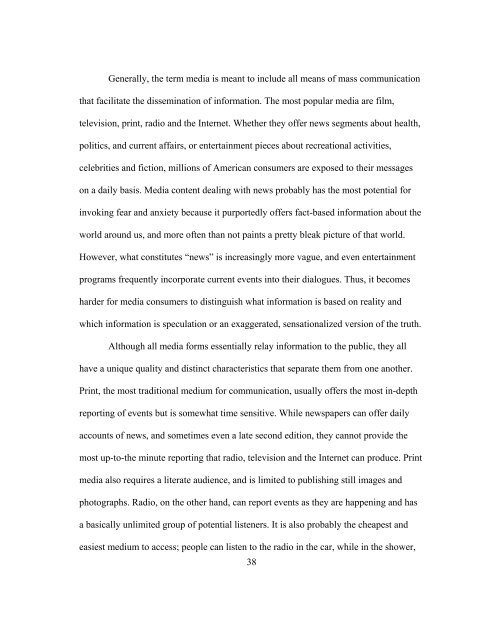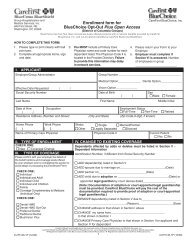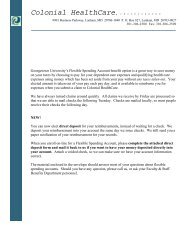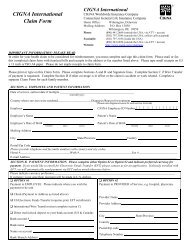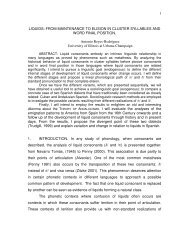Media Induced Fear and Anxiety - Georgetown University: Web ...
Media Induced Fear and Anxiety - Georgetown University: Web ...
Media Induced Fear and Anxiety - Georgetown University: Web ...
You also want an ePaper? Increase the reach of your titles
YUMPU automatically turns print PDFs into web optimized ePapers that Google loves.
Generally, the term media is meant to include all means of mass communication<br />
that facilitate the dissemination of information. The most popular media are film,<br />
television, print, radio <strong>and</strong> the Internet. Whether they offer news segments about health,<br />
politics, <strong>and</strong> current affairs, or entertainment pieces about recreational activities,<br />
celebrities <strong>and</strong> fiction, millions of American consumers are exposed to their messages<br />
on a daily basis. <strong>Media</strong> content dealing with news probably has the most potential for<br />
invoking fear <strong>and</strong> anxiety because it purportedly offers fact-based information about the<br />
world around us, <strong>and</strong> more often than not paints a pretty bleak picture of that world.<br />
However, what constitutes “news” is increasingly more vague, <strong>and</strong> even entertainment<br />
programs frequently incorporate current events into their dialogues. Thus, it becomes<br />
harder for media consumers to distinguish what information is based on reality <strong>and</strong><br />
which information is speculation or an exaggerated, sensationalized version of the truth.<br />
Although all media forms essentially relay information to the public, they all<br />
have a unique quality <strong>and</strong> distinct characteristics that separate them from one another.<br />
Print, the most traditional medium for communication, usually offers the most in-depth<br />
reporting of events but is somewhat time sensitive. While newspapers can offer daily<br />
accounts of news, <strong>and</strong> sometimes even a late second edition, they cannot provide the<br />
most up-to-the minute reporting that radio, television <strong>and</strong> the Internet can produce. Print<br />
media also requires a literate audience, <strong>and</strong> is limited to publishing still images <strong>and</strong><br />
photographs. Radio, on the other h<strong>and</strong>, can report events as they are happening <strong>and</strong> has<br />
a basically unlimited group of potential listeners. It is also probably the cheapest <strong>and</strong><br />
easiest medium to access; people can listen to the radio in the car, while in the shower,<br />
38


